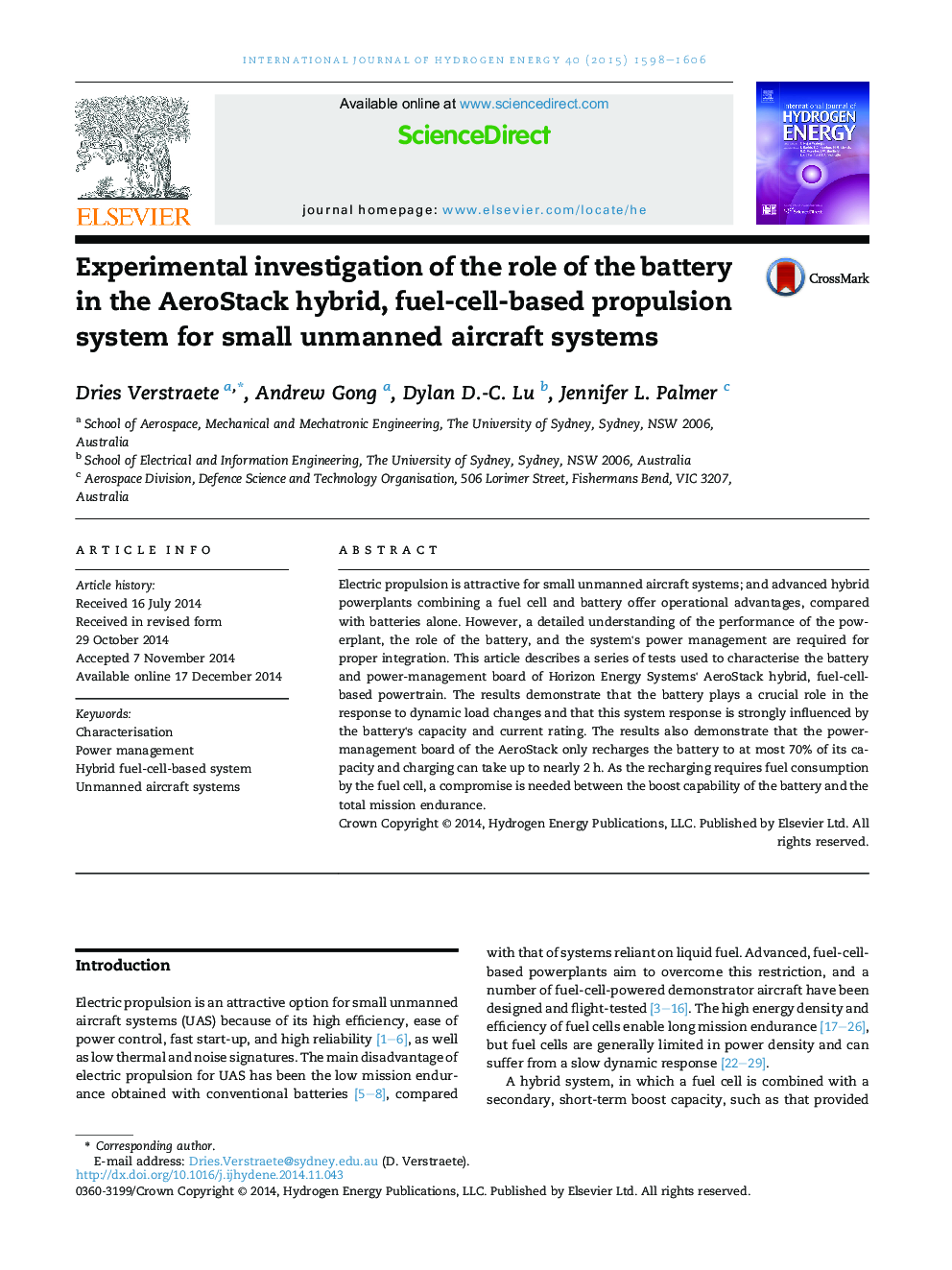| Article ID | Journal | Published Year | Pages | File Type |
|---|---|---|---|---|
| 1270145 | International Journal of Hydrogen Energy | 2015 | 9 Pages |
•The hybrid AeroStack fuel-cell/battery system is experimentally characterised.•Battery C-rating and capacity significantly impact overall system performance.•The battery is recharged up to 24.2 V, or 70% of its nominal capacity.•Battery selection is a compromise of boost capability and mission endurance.
Electric propulsion is attractive for small unmanned aircraft systems; and advanced hybrid powerplants combining a fuel cell and battery offer operational advantages, compared with batteries alone. However, a detailed understanding of the performance of the powerplant, the role of the battery, and the system's power management are required for proper integration. This article describes a series of tests used to characterise the battery and power-management board of Horizon Energy Systems' AeroStack hybrid, fuel-cell-based powertrain. The results demonstrate that the battery plays a crucial role in the response to dynamic load changes and that this system response is strongly influenced by the battery's capacity and current rating. The results also demonstrate that the power-management board of the AeroStack only recharges the battery to at most 70% of its capacity and charging can take up to nearly 2 h. As the recharging requires fuel consumption by the fuel cell, a compromise is needed between the boost capability of the battery and the total mission endurance.
